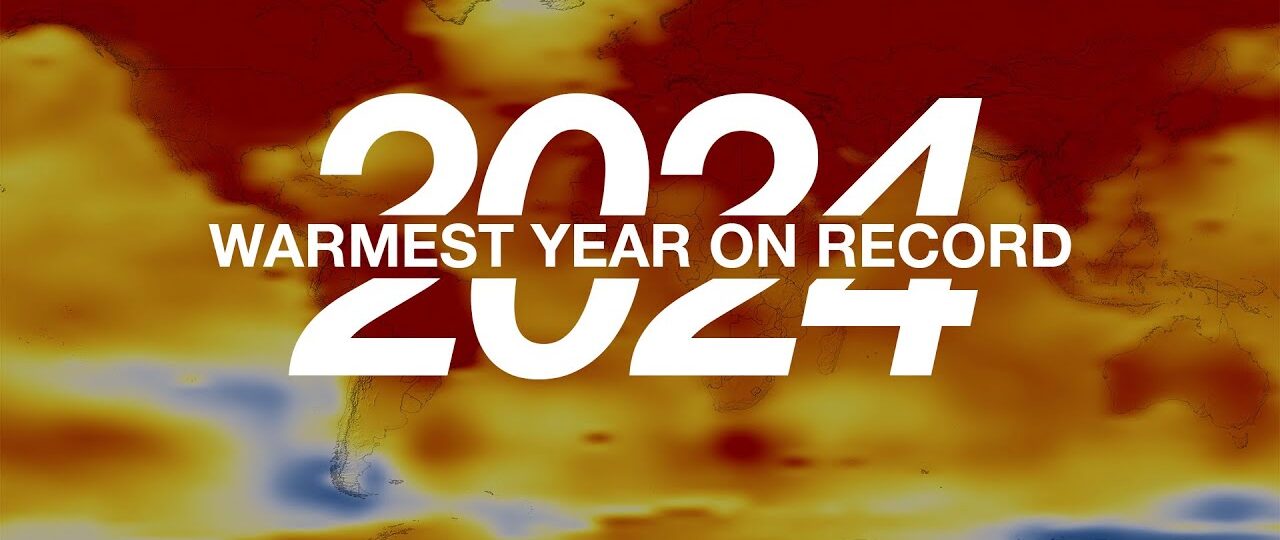Amid dramatic policy shifts from the White House, NASA confirms unprecedented global temperatures
Global temperatures have reached a new high, according to a report from NASA. The Agency found that average temperatures were 2.30 degrees Fahrenheit (1.28 degrees Celsius) above their baseline. This follows 15 consecutive months of record-breaking temperatures—a heat streak that NASA describes as “unprecedented.”
Climatologists have understood the correlation between these warming trends and human activity.
“We can recognize that carbon dioxide is definitively coming from humans,” Dr. Boyer, a Winthrop professor of geology and climate science, told the Johnsonian. “Coal comes from plants and plants incorporate carbon. This creates a distinct geochemical fingerprint. When we burn coal, that fingerprint goes into the atmosphere.”
Higher concentrations of carbon dioxide, methane, and other greenhouse gases in the atmosphere have driven these temperatures upward. However, climate systems are complicated. “You can get hot days and you can get cold days,” said Dr. Boyer. “But you still have these averages that are out of the ordinary.”
Temperatures across the Southeast are expected to be abnormally high in February, according to a report from the National Weather Service. The Charlotte area can expect temperatures above 70 degrees, a figure that is above the February average.
Warm weather comes only two weeks after a cold-front deposited half-an-inch of snow in York County, closing Winthrop’s campus, as well as other schools and government offices across the region.
The consequences of climate change are already being felt. A report from the National Oceanic and Atmospheric Administration found that climate change intensified Hurricane Helene in September. According to the National Integrated Drought Information System, nearly half of South Carolina is experiencing at least an abnormal dryness; York County is experiencing a moderate drought.
In the West, wildfires are intensified and made more common by human-induced climate change. When asked about the frequency and intensity of weather phenomena, Dr. Boyer explained that climate change will negatively affect communities across the country. Droughts, hurricanes, and floodings will become more common, but so will socio-economic challenges.
“Under increased temperatures, there’s increased crime.” Discussing a student’s research, Dr. Boyer noted an increase in child marriages within impoverished communities during extreme climatic conditions.
Ten days after NASA released its report, President Trump signed an executive order that withdrew the United States from the Paris Climate Accord, although the United States remains one of the largest emitters of greenhouse gases. The decision to withdraw from the Paris Climate Accord was followed by an aggressive erasure of climate-related language from the Environmental Protection Agency’s website.
The President’s administration plans to ramp up oil production, as well as eliminate fuel standards in vehicles, a dramatic shift from the Biden administration’s climate-policy.
Climate experts agree Trump’s decision will be disastrous for the global effort to combat climate change.
“We’re definitely not doing enough,” Dr. Boyer said. “One of the frustrating things is, the more you learn about climate change, the more you learn that there are a myriad of solutions.”
However, many of these solutions are expensive, or demand lifestyle changes. Overconsumption is a documented problem in wealthier nations. Industrializing nations, such as those in Africa and Asia, seek prosperity through traditional pathways that will naturally contribute to human-induced climate change.
Despite the many challenges relating to climate, Dr. Boyer remains confident in humanity. “Humans have innovated and adapted in ways that are really promising. But I don’t want to give the impression that it’s enough. We still have a lot of work to do, and there’s lots of things to be fearful of, but I do think we can make really positive changes.”
Winthrop and Rock Hill offer many opportunities for students to get involved in educating and cleaning their community. Interested students should seek out Winthrop’s Student Environmental Action Coalition (SEAC), the Conservation and Environmental Professions Connection (CEPC), the American Conservation Coalition, as well as the Rock Hill Clean and Green and the Sierra Club.




